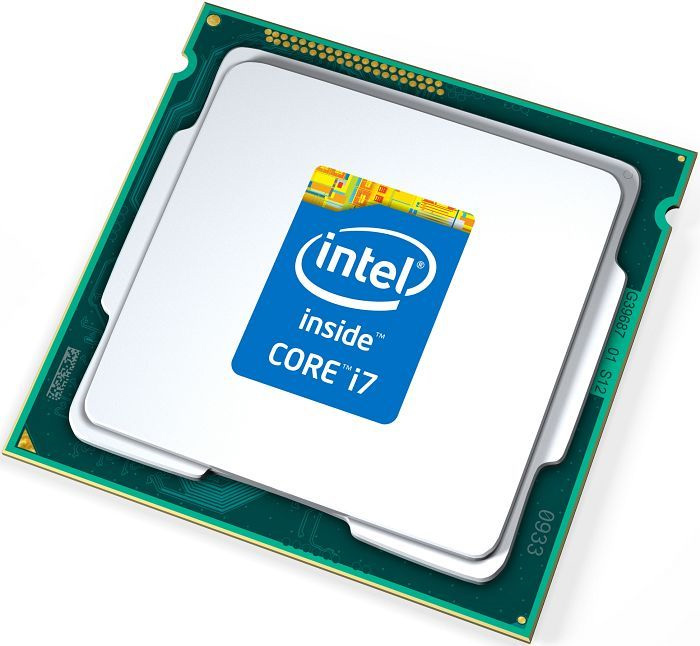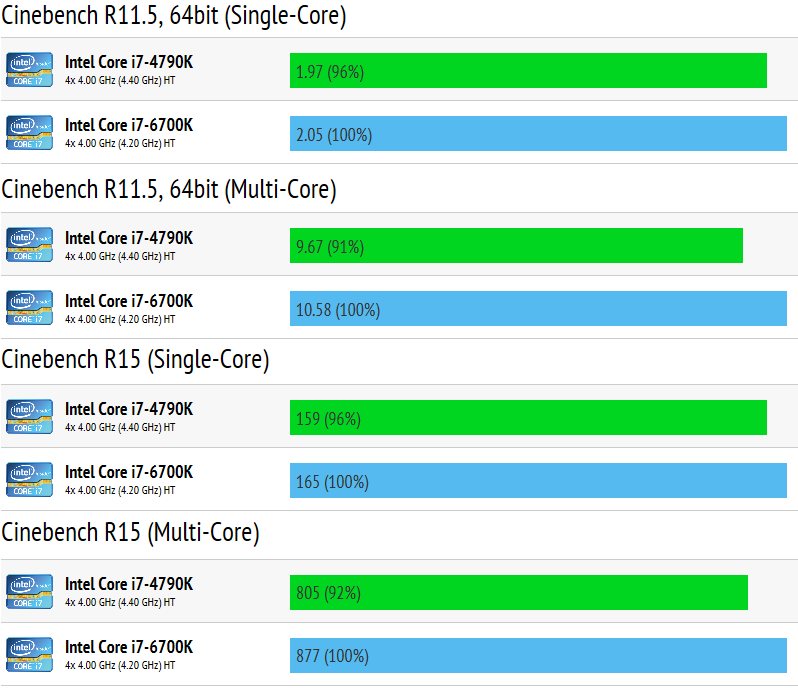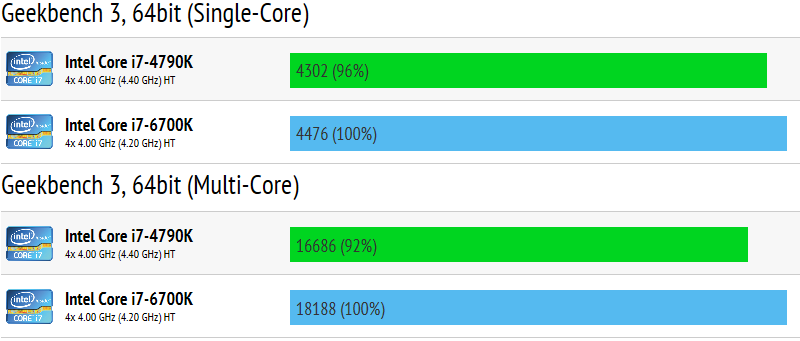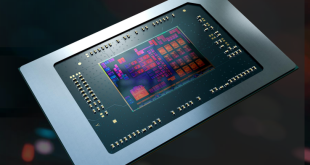A web-site has published what it claims to be early benchmark results of Intel Corp.’s Core i7-6700K microprocessor based on the “Skylake” micro-architecture. If the results are accurate, then the new chips will be at least four to eight per cent faster than the current mainstream processors with unlocked multiplier. Still, it is too early to draw any conclusions.
CPU-Monkey on Tuesday published a page with alleged Intel Core i7-4790K (four cores with Hyper-Threading, 4GHs/4.4GHz clock-rate, 8MB LLC, dual-channel DDR3 memory controller) vs. Intel Core i7-6700K (four cores with Hyper-Threading, 4GHs/4.2GHz clock-rate, 8MB LLC, dual-channel DDR4/DDR3L memory controller) benchmark results. The web-site did not reveal any details about test bed configurations, when the performance tests were made and by whom. One of the possible sources of the benchmark results are Intel’s own documents for partners, another imaginable source is an Intel partner with access to the new hardware.
Maxon’s Cinebench benchmarks based on the company’s Cinema 4D software that is used by studios and production houses worldwide for 3D content creation significantly stresses microprocessors and greatly benefits from multi-core central processing units. Cinebench R15’s test scene uses sharp and blurred reflections, area lights, shadows, procedural shaders, antialiasing, and much more, something that uses all available resources from microprocessors.
If the test results are correct, then Intel’s “Skylake-S” micro-architecture is slightly faster in single-core mode than “Haswell”. In multi-core mode, the new-generation Core i7-6700K processor offers significantly better results than the current-gen Core i7-4790K due to higher internal parallelism on the micro-architectural level and better optimization of various blocks within the CPU.
PassMark CPU Mark is a set of tests that promises to replicate actual workloads and hence they take advantage of multiple processor cores. The benchmark measures performance in such operations as compression, encryption, execution of SSE instructions and so on. It also measures maximum performance integer and floating point units of CPUs. The result is presented in points, which means that it is impossible to determine strong and weak aspects of a microprocessor.
If the results are correct, then the new Core i7-6700K will be generally faster than the current Core i7-4790K in various client PC apps.
GeekBench 3 by Primate Labs is a cross-platform benchmark for central processing units that is designed to simulate real-world scenarios. GeekBench 3 takes advantage of multi-core microprocessors as well as of fast memory sub-system.
In full accordance with previous benchmark results, the new Core i7-6700K “Skylake” processor beats its predecessor both in single-core and multi-core modes, which indicates that the novelty has a number of micro-architectural advantages. Higher performance benefit in multi-core test demonstrates that Intel continues to optimize efficiency of execution of multiple threads.
Intel did not comment on the news-story.
Discuss on our Facebook page, HERE.
KitGuru Says: As usual, early benchmark results should be taken with a huge grain of salt. Even if the current test results are correct, it remains to be seen in what type of applications Intel’s new chips can show their maximum performance advantages over predecessors. While mainstream benchmarks do indicate relative benefits, they may not demonstrate certain local breakthroughs, which may be important.
 KitGuru KitGuru.net – Tech News | Hardware News | Hardware Reviews | IOS | Mobile | Gaming | Graphics Cards
KitGuru KitGuru.net – Tech News | Hardware News | Hardware Reviews | IOS | Mobile | Gaming | Graphics Cards






